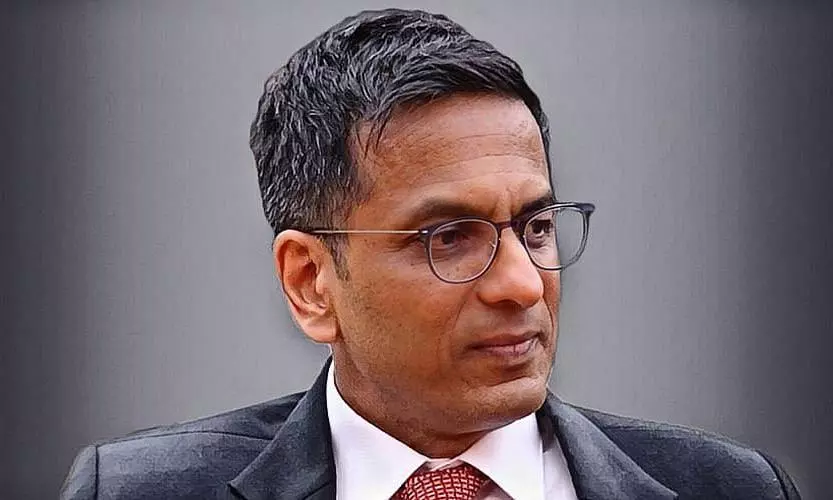
Lawmakers must ensure law is no tool for oppression: CJI Chandrachud
text_fieldsNew Delhi: Chief Justice of India DY Chandrachud said on Saturday that it is not just the duty of the judiciary but also the lawmakers to ensure that the law does not becomes a tool for oppression but remains an instrument of justice, PTI reported.
Addressing the Hindustan Times Leadership Summit, Chandrachud said that it is great that citizens expect a lot from the courts, but one needs to understand that there are limits as well as the potentiality of courts as institutions.
"Sometimes, the law and justice do not necessarily follow the same linear trajectory. The law can be an instrument of justice, but the law can be an instrument of oppression as well. We know how in colonial times the same law, as it exists in the statute books today, could be used as an instrument of oppression," he said.
"So, how do we ensure, as citizens, that the law becomes an instrument of justice and the law does not become an instrument of oppression. I think the key is the way in which we handle the law, which includes all decision makers and not just judges," the CJI, who took the oath to the office on Wednesday, said.
Compassion, a sense of empathy and the ability to address the citizens' grievances were what sustained the judicial institutions in the long run, Chandrachud said.
"When you have the ability to hear unheard voices in your system, (see) unseen faces in the system and then see where the balance between the law and justice lies, then you can truly perform your mission as a judge," Justice Chandrachud said.
According to him, social media has posed big challenges since every word uttered by a judge in courtrooms gets reported in real-time s and "you are constantly evaluated as a judge".
"Everything said by a judge during a course of conversation in the court does not reflect either the mind of the judge or the ultimate conclusion that the judge would arrive at," the CJI said.
"The process of judging that goes on in the courts is dialogic. There is a free-flowing dialogue between lawyers in the court and the judges between themselves in an effort to unravel the truth," he said.
Justice Chandrachud said that "we live in the era of the internet and social media, which is here to stay".
So, I do believe that we need to fashion, re-engineer, find new solutions, retrain, recoup, rethink our role in trying to understand how we meet the challenges of the age we are living in," he said.






















